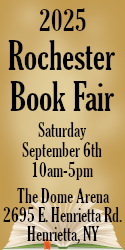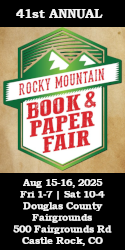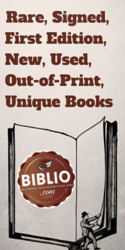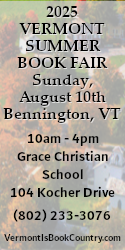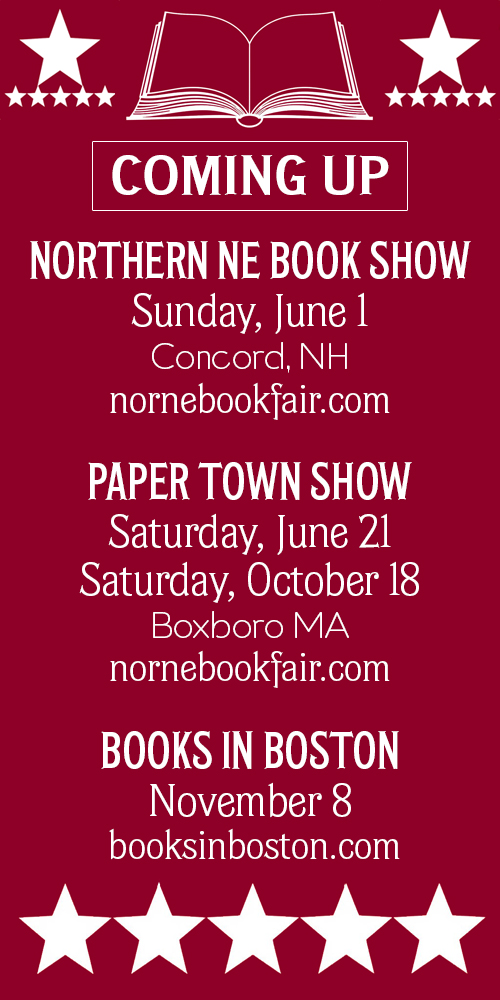A Body in a Library
There are twelve of us in total, gathered here in the library. The usual suspects? Not exactly. But many of the faces are familiar to me, and probably also to my friend, Steve Brazil, who has a secondhand bookshop in Melbourne. I've invited him to accompany me on this investigation. His role is to play Dr. Watson, while I play Sherlock Holmes. With his military background – five years spent as a volunteer in the Australian Defence Force, as a means of dodging the Vietnam war draft – he should be handy with a revolver. Or perhaps not. Steve is frankly a weedy-looking individual, with pacifist instincts. Still, it's good to have someone along, however puny, to mind my back. This crowd looks mean, someone is dead, and things could turn ugly.
Just kidding. We're not here to investigate a murder. But there is a body. It's a body of people called the Book Collectors' Society of Australia (BCSA). And there is a library: the State Library of Victoria, smack in the middle of Melbourne, and that's where we are, attending the February 2015 meeting of the BCSA.
The invitation announced that this meeting would be the Victorian Branch Members' Night. "Members are asked to bring a book from their collection and to speak briefly about it." Briefly. I like that. Probably it should be in bold, or in italics, or underlined, for emphasis. It's hard to rein in a book collector, once he's off on a gallop, talking about one of his treasures. And I like the Members' Night meeting, affectionately known as "Show and Tell Night". In Australian primary schools, on a Monday morning, children often have a "Show and Tell" session when they can bring along something significant from their weekend, to show it round the class and talk about it. Or even "skite" about it. (This is an Australian word meaning to boast or to brag.) Members' Night at the BCAS is also an occasion for book collectors to skite – modestly or immodestly – about something significant in their collection.
Looking around, I feel sure we will get some skiting this evening. Eleven men, one woman. The usual ratio in book collecting? Probably not, not any longer, but the BCSA is an old-fashioned organisation, antiquated even. Why, the invitations don't go out by e-mail but by normal letter post. For heaven's sake! And the invitations keep on coming, even when you (I mean I) haven't paid your subscription, or attended a meeting, for three years. Inefficiency? Certainly not. Just old-fashioned courtesy. Just because a man happens to have sold his bookshop and moved to Germany does not mean he is struck off the BCSA register. I was touched to find the invitation in my letter box. And I was interested to read that the new Honorary Secretary is someone new, Stephen Herring, Rare Books Librarian at Monash University, Melbourne. And perplexed to read that the post of President was marked "Vacant". Who was the last President, I wondered. What happened to him? Was there a putsch? But then, why no new President?
At ten past six, sharp, the meeting is introduced by Des Cowley, Rare Books Librarian at the State Library – and sometime boss of my daughter Julia, who once worked at this library. He welcomes us to his domain. He points out the elegant glazed bookcases - six bays of them – which line the walls of the corner where we are sitting. They are the gift of the immediate past president of BCSA, Dr. John Emmerson, who died in office in August 2014. Dr. Emmerson has also donated his reference library to the State Library and it will be lodged on these shelves. The corner will henceforth be known as "The John Emmerson Corner." Aha. I remember John Emmerson slightly. An affable, slightly bumbling gentleman, with a nice self-deprecating sense of humour. But beyond that, nothing much. Will someone talk about him? Give some sort of eulogy? No, I guess it's already been done. You miss stuff when you live overseas. But I'm intrigued: who was John Emmerson? What's his story?
In the absence of a President, a past President, Professor Wallace Kirsop takes the chair. Oh, I like Wal! A great collector and bibliophile, a retired professor of French. Something of a pedant of course. (The definition of a pedant: "Someone who is prepared to take a little more trouble over details than you are yourself.") I once ran into Wal (almost literally) in the Rue Jacob in the St. Germain quarter of Paris.
"How amazing!" I said. "What a coincidence, to meet someone from Melbourne, here, in Paris. And you, of all people!"
"On the contrary," he said. "Of all the people in Melbourne you could meet in Paris, I am probably the most likely one: especially in this bookish quarter. My publishers have their offices just round the corner."
And off he went. Now he looks at his watch.
"The chair speaks last," he says. "So let's begin on my left, and proceed clockwise round the table. Try to keep your talk to five minutes each, or else we will be here till midnight."
Nervous laughter all round. Noboby wants to be here till midnight. But some people will certainly have brought more than one item to show off. And there are some notorious old windbags amongst us. And then, hell, four more members – all old men – clutching precious show-and-tell books – sidle in late . This is Australia, where punctuality is not a virtue but almost an affront. Sixteen round the table now. Oh yes, we could well be here till midnight.
Dr. John Chapman – I knew it – has three items to show off. The first two are not books but bits of printed paper: one an example of early photolithography from the 1850s, which is significant for a reason which I have forgotten; the other, a parliamentary paper of 1864 which shows clearly – and conclusively – that the Parliament of Victoria supported financially the Burke and Wills Expedition, which set out from Melbourne in 1860 to cross the Australian continent from south to north. Burke and Wills were successful in reaching the Gulf of Carpentaria on the north coast but failed to make it back home. They both died of exhaustion, starvation and thirst near (but clearly not near enough) to Cooper's Creek in central Australia. Their story has become part of Australia's mythology. Burke and Wills are emblematic of heroic endeavour, which ends in tragedy. Just as, in this modern age, Work and Bills are emblematic of the heroic endeavour of Everyman.
Dr. Chapman concludes by exhibiting the first book published in Australia, (in the mid-nineteenth century) on the subject of water divining, which he dismisses as "scientific nonsense." I think he means to say "unscientific nonsense" or "scientifically nonsense" but his meaning is clear. As a man of science (a retired dentist), he has no time for people who claim to be able to discover underground water or hidden ancient springs, by holding out in front of them split hazel sticks, or bits of wire, which twitch. That some water diviners clearly have a gift and can actually do what they claim to do cuts no ice, so to speak, with Dr. Chapman. He seems nonetheless pleased to be the owner of this rare book. By coincidence, I and several others, have just seen an Australian film, starring Russell Crowe, called "The Water Diviner." We recommend it to Dr. Chapman, who smiles, and snorts.
The film is mostly about an Australian father's quest in Turkey for the remains of his three sons who have been killed at Gallipoli in 1915. Here we are in 2015, a hundred years after the fact. Mike O'Brien, a retired Major-General and owner of Bradstreet's Books, shows us some sheet music, entitled The Anzac Games in Gallipoli, words and music by Michael Thwaites. As a printed piece, it's rare, interesting and beautiful. The attractiveness of the actual music we cannot judge as the general declines an invitation to sing, or even hum, the melody. He also shows us a copy of The Female Servants' Advisor published in 1880, which gives, inter alia, advice on how to get rid of unsatisfactory servants; also, warnings about the dangers of engaging in "criminal intimacy" with servants (the two topics may perhaps be related). It seems that the author was a clergyman, who seems to know what he was talking about.
The next member, a very elderly man whose name I have lost, shows us his copy of a new book by Jean Campbell, The Bookshop Book (Constable 2014). I know it, I have read it, I have my own copy, and I can endorse his enthusiam for it. It's a treasure trove of interesting anecdotes about, and beautiful pictures of, 300 distinguished or strange or quaint bookshops around the world. I award a bookshop in Argentina my personal first prize for the elegance and sumptuousness of its interior.
Kay Craddock is the only woman in the room. Kay is a very distinguished antiquarian bookseller, with a glorious shop in the middle of Melbourne. She is a past president of ANZAAB (The Australia and New Zealand Association of Antiquarian Booksellers) and – a pinnacle of achievement in our trade – was president of ILAB (The International League of Antiquarian Booksellers). What treasures will Kay show us? Perhaps Stuart Kells' book about her and her shop: Rare: A Life Among Books (Folio/Wentworth, Sydney 2011)? No, sadly, with characteristic modesty, she prefers to pass, without showing or telling. As I do, but for a different reason. I genuinely have nothing to show or tell.
John Loder is a renowned collector and bibliographer of colonial editions and of crime fiction. His book Australian Crime Fiction: A Bibliography 1857-1993 (Melbourne 1994) is the standard work. What I did not know is that he is also an authority on P.G.Wodehouse. (Charles Gould, are you awake? Are you reading this?) John shows round his latest publication: P.G.Wodehouse's Colonial Editions Continued, with his Australian Sheet Music (Melbourne 2014), a small edition limited to only 75 copies. He plans to publish yet another book of addenda, to supplement his main compilation: The Colonial Editions of P.G.Wodehouse. Why should we care? Because colonial editions, he says, are often the true first editions of an author's work: having to be shipped overseas, with a voyage of up to three months, they were often printed long before the edition for the domestic market: and they often carry significant variations. John has also unearthed a book, written by Grant Allen, Hilda Wade, a Woman with Tenacity and Purpose (Grant Richards,1900) with illustrations by Gordon Browne (son of a famous father, Hablot Browne - "Phiz" - who illustrated works by Charles Dickens). What is interesting is that this book was completed by Arthur Conan Doyle: he himself reports in his Memories and Adventures (Hodder and Stoughton 1924) that he wrote the last two chapters, after his friend Grant Allen died, leaving the book unfinished. There is a small discrepancy here: the publisher acknowledges Conan Doyle's contribution of the last chapter only. Sherlock to investigate?
As a bookseller I sold many copies of a book by Virginia Cowles' The Phantom Major (Collins 1958). This evening I discover, for the first time in my life, what it's about. (I feel – briefly – rather ashamed about this, but heck, booksellers can't know everything.) It turns out that it is a biography of Major David Stirling, his war service in North Africa in 1942 and his founding of the British SAS (Special Air Service) Regiment, this a fore-runner and model of many special operations and anti-terrorist units which are active today. The member who talks about it shows two different dust jackets: the (attractive) art work is the same in both cases, but the earlier dust jacket is predominantly green, while the later one is predominantly red. Is this important? I guess it could be.
My friend Steve has been listening attentively and now it's his turn. He produces a copy of Ruskin's Sesame and Lilies, dated 1897, most attractively bound in full leather by Cassidy of Melbourne, a prize binding for C.G.L. of Geelong Grammar School. It is much admired. Raised bands, dentelles, blind-stamping and other technical terms are bandied about. But nobody has heard of the binders, nor any suggestion of who C.G.L. could be. Steve seems quietly satisfied, no, smug is the word, to have shown off a treasure which has elicited admiration, and some puzzlement, from the assembled book cognoscenti.
Stephen Harris, the newly-appointed secretary of the BCAS, shows us a rescent acquisition for his rare books library at Monash University: The Boys Journal (Vickers, London 1870).Here – the parts bound up in book form – is the first appearance in English of Jules Verne's science-fiction thriller Journey to the Centre of the Earth, anticipating the English first edition published in 1871 (the French first edition having been published in 1864). Do I detect a mildly Scottish accent in Stephen's speech? The strong connection between France and Scotland – the auld alliance – lives on!
A Scot, Sinclair Thompson Duncan, is the author of a book exhibited by Michael Atkin: A Voyage to Australia (Edinburgh 1869), subtitled "Six months in Melbourne." I have done some research on this book, suspecting that it is yet another superficial appraisal of the antipodean colonies by a casual blow-in (Mark Twain was another, but he makes us laugh). It looks like I am right. Richard Neylon, a Sydney bookseller, whose opinion I respect, comments: "Duncan seems a sanctimonious and patronizing bore, incapable of writing anything with perception or intelligent discrimination." The book does however include a description of the State Library, in which we are sitting: it is "open to men and women from 10am till 10pm." Though the opening hours have shrunk somewhat since 1869, happily women are still allowed in. We look at Kay Craddock who smiles enigmatically. Michael blames Kay for his collecting habit. Fifty years ago he found in her bookshop a small cache of printed material relating to the visit to Melbourne of the U.S. fleet in in 1908. Since then, collecting anything to do with visits of the American navy to Australia has become "a disease." Of the hundreds of items he possesses he shows us a membership ticket issued to Lieutenant-Commander Ed Jewell for the Melbourne Bicycle Club in 1908. Ed Jewell visited Melbourne again in 1925 – now promoted to Admiral. Michael ends by showing us a pretty advertising card, featuring Father Christmas and a kangaroo, dated about 1920. "For twenty years I have kicked myself for not buying something when I had the chance. And last month I got a second chance. Here it is!" There are tears of joy – almost – in Michael's eyes. He is a true collecting "tragic" and he knows it.
Mick Stone, owner of Camberwell Books, muses further on the collecting habit and quotes Dr. Johnson from The Idler #56 (May 12 1759). "The pride or pleasure of making collections," writes the doctor, "if it be restrained by prudence or morality, produces a pleasant remission after more laborious studies, furnishes an amusement not entirely unprofitable for that part of life....which would otherwise be lost in idleness or vice." Mick reminds up that as collectors we are all here this evening because we are resisting idleness and vice. Especially on a Friday evening! He shows round a copy of Ephemera News # 50, freshly published. It is the last issue to be printed on paper: a sign of the times, symptomatic of the move from paper to the internet. He also exhibits Introducing Kafka, by David Mairowitz (Cambridge 1994). It looks like a comic book but is a serious book, presented in pictorial form, with illustrations by the distinguished artist Robert Crumb, "the world's greatest underground comic artist." Mick, an authority on comic books and their offshoots, makes a plea for people like us (he means old fuddy-duddies) not to dismiss books published in this new format as mere comics. The format is (often) a serious, innovative and important way of presenting ideas and literature, to younger people who would not willingly read books presented in a traditional format.
John Young shows an issue of a magazine The North Queensland Annual which periodical was published by C.K.Bolton in Cairns from 1966 to 1972. Few copies survive: the national library and the state libraries have scant holdings. A pity, as there are photographs and articles of merit. But libraries can't keep everything: where should they draw the line?
John Dean, veteran bookseller and bookshopseller, takes the floor. John has sold at least three bookshops as going concerns. Some of his gnomic pronouncements: "Any fool can sell a secondhand book. It takes skill to sell a secondhand bookshop." "You are not selling a secondhand bookshop. You are selling a dream. And dreams are priceless." And so on. Presiding at the desk in any one of his bookshops, John was like a spider at the centre of his web, waiting for prey. A twitch by a fly on the outer reaches, and John would move in the kill. No customer, no dealer even, was immune. "Ever seen one of these?" Some treasure would be conjured from a drawer, a pocket, a safe. And the spiel would begin. This evening the spiel is about his latest coup: he has sold his collection of works relating to Frederick Deeming to the State Library, via the Rare Books Librarian, Des Cowley. Poor Des probably had no chance. Frederick Deeming was – apparently – Australia's most famous murderer. Really? I thought this honour belonged to Ned Kelly. Kelly, incidentally, has a creepy connection with this library. The judge who sentenced Ned Kelly to be hanged by the neck until he was dead was Redmond Barry, the man who founded the State Library of Victoria. Kelly famously said to the judge, after sentence: "I will see you in hell soon." Soon indeed. Within a year Judge Redmond Barry too was dead.
The two books which John Dean show round are an anti-climax: a proof copy of a book of poems sent to bookseller William Dymock, of Sydney, in 1893, apparently published by him, and hitherto unrecorded; and an illustrated Chinese Pillow Book of about the same date. He says that Chinese pillow books emphasise "men's togetherness" while Japanese pillow books emphasise "togetherness with women." This subject clearly requires further, and closer, investigation- more than I can devote to it here.
Richard Overell, recently retired as Rare Books librarian at Monash University (and whose praises I have sung often elsewhere), has no books to show off, but he reflects on the generosity of book collectors, who, like John Emmerson, have donated their collections to libraries. He mentions Jack Bradstreet who has donated his Robert Graves collection to Monash. Des Cowley recalls the Kilvington bequest of the first 5000 Penguin paperbacks to the State Library: the library attempted to collect every Penguin published thereafter, but had to abandon the attempt as simply too overwhelming. General talk about Penguins and their offshoots: Richard mentions the 1940s-1950s series of Puffin Picture Books, one of which, Butterflies in Britain, is written illustrated by Richard Chopping, more famous for designing and illustrating the dustjackets of the James Bond novels, published in England by Jonathan Cape.
Wallace Kirsop winds up the meeting by paying homage again to John Emmerson. As a tribute to Dr. Emmerson, a serious collector of books about the English Civil War, Charles I and the early Stuarts, he exhibits a French edition of King Charles I's swansong, Eikon Basilike (1649), the copy which belonged to Francis de Castelnaux, first Consul-General of France in Melbourne from 1863-1877. Redmond Barry was the founder of the State Library of Victoria: Castelnaux, who donated books, was its first benefactor. He began a fine tradition which has endured.
"Well, Steve. What do you think about your first experience of the Book Collectors?"
"Awesome," he says.
"Will you become a member?"
" I don't think I'm old enough," he says, with a smile. He takes a swig of his beer. It's been a long evening. Not a midnight finish, but the meeting continued till well past 8.30pm. (You will note that I have spared you a number of show-and-tell contributions). Steve has a point. The average age of the book collectors present this evening must be well over 70. Is there a future for a society such as this? Will an internet chat room, with images of books and ephemera, replace the sort of face-to-face, and hands-on, meeting we have just enjoyed? It could well be. There is little or no sign of younger people stepping forward to join the BCSA. It's an old-fashioned organisation. Perhaps it's astonishing that it has survived as long as it has.
A few months later, back in Freiburg, I receive in the post the annual report of New College, Oxford, to which establishment I was attached — briefly — as a post-graduate. (My old college in Cambridge no longer sends out its annual report on printed paper. It's available on line only, so I never think to look at it). I enjoy browsing through the New College report, especially the obituaries. So neat, this summing up of each life — more or less worthwhile — in a few brief paragraphs! And here mirabile dictu — is one which leaps out at me: John McLaren Emmerson (1964), physicist, barrister, and book collector, born in Melbourne on 4 April 1938. With a BSc.and Msc. From the University of Melbourne. "In 1961 a Shell Company Scholarship took him to Oxford, where he got his D. Phil in 1964...He became a junior fellow in New College, where friendship with Bent Juel-Jensen opened up a new world of books, while nuclear physics continued to engage his research and his teaching... Admitted to the bar in 1976, he became an authority on intellectual property, notably in pharmaceutical patents, as well as contentious issues involving scientific process... His extraordinary memory, logic, grasp of technical detail, wit and economic eloquence, made him an authoritative presence in court and beyond." So this was the President of the BCSA, whom I remember as a "bumbling, unassuming old man".
This obituary, written by the noted bibliophile and writer on bibliophily, Nicolas Barker (New College 1953), goes on to list Emmerson's collecting interests — Charles I, the civil war and literature of the epoch — plus some of the highlights of his collections, including "... the second edition of Hobbes' Leviathan in red morocco with the arms of John Sheffield, Duke of Buckingham and, finest of all, Hooker's Laws of Ecclesiastical Politie (1635) in an embroidered binding, probably once Queen Henrietta Maria's... All these grew to fill the fine old house in Park Street, South Yarra, in which he lived. By his bequest, his library is to stay in Australia, although Charles I's travelling library is destined for the Bodleian. Emmerson died in Melbourne on 14 August 2014, after suffering from some years from the onset of Parkinson's disease." The Bodleian Library website reveals exactly what King Charles's travelling library is: "Two red leather cases, designed in the 1970s by Sangorski and Sutcliffe to look like two large books, open up to reveal 59 small volumes covering just about everything that a wealthy educated gentleman would want to read on his travels..." Exquisite.
Some acts are very difficult to follow. I understand why the office of president of the Book Collectors Society of Australia remained (and perhaps remains?) vacant for months after Emmerson's death. I feel sure that it is an old-fashioned and elegant way of showing respect for a remarkable man and a remarkable book collector. How typical of this remarkable society.
*
Anthony Marshall, is a retired secondhand bookseller now living in Germany. He is a member of the Australian and New Zealand Association of Antiquarian Booksellers, a past member of the Provincial Booksellers Fairs Association in England, where for ten years he ran the County Bookshop in Oakham, Rutland, and former owner of Alice's Bookshop in Melbourne, Australia. Mr. Marshall has contributed many articles to book magazines, all of which with the exception of “Book Source Magazine” are now defunct. Some of these articles reappear in his two books: “Trafficking in Old Books” (Lost Domain, Melbourne 1998) and "Fossicking for Old Books” (Bread Street Press, Melbourne 2004).



